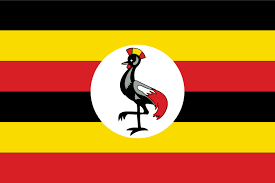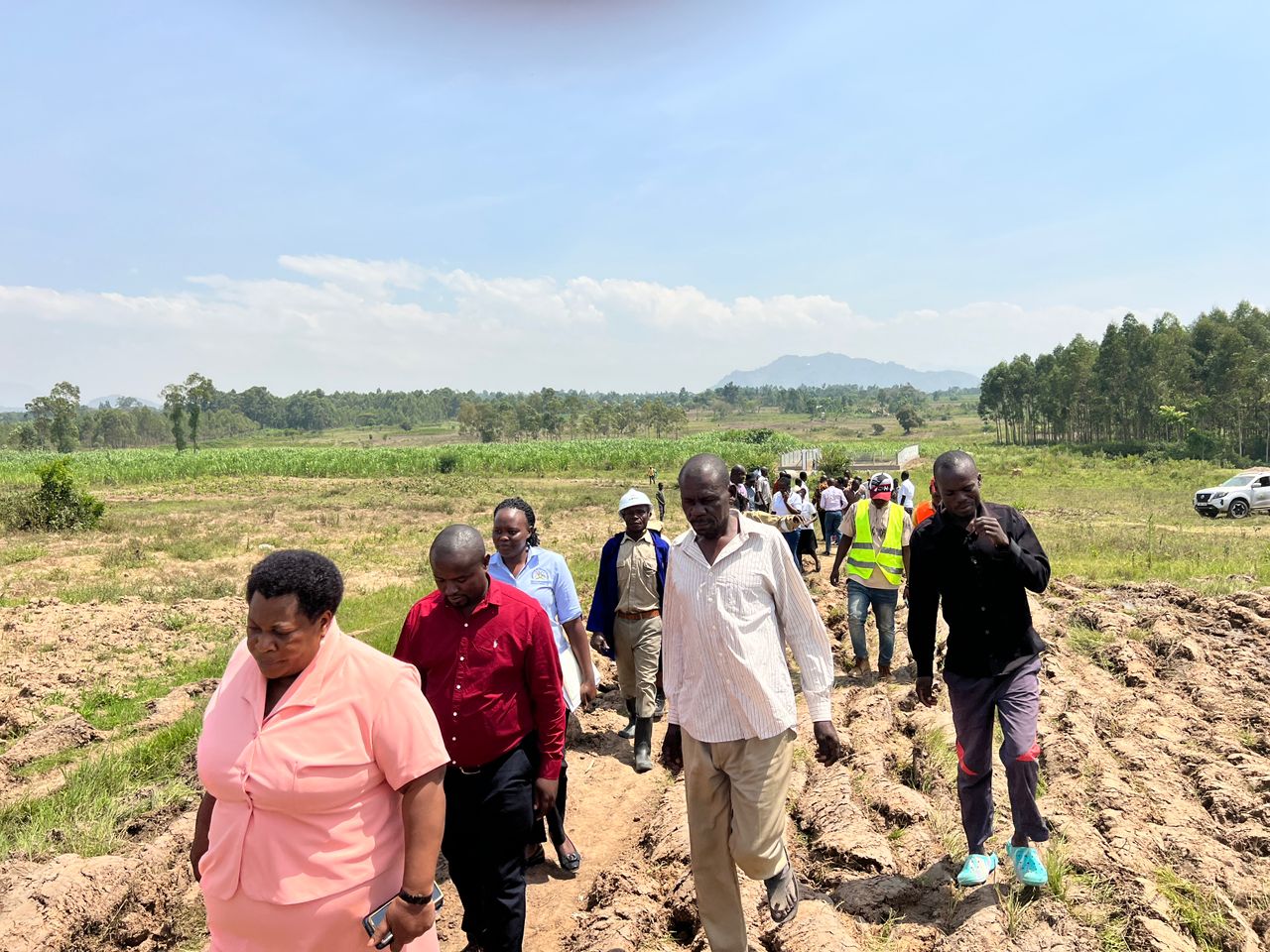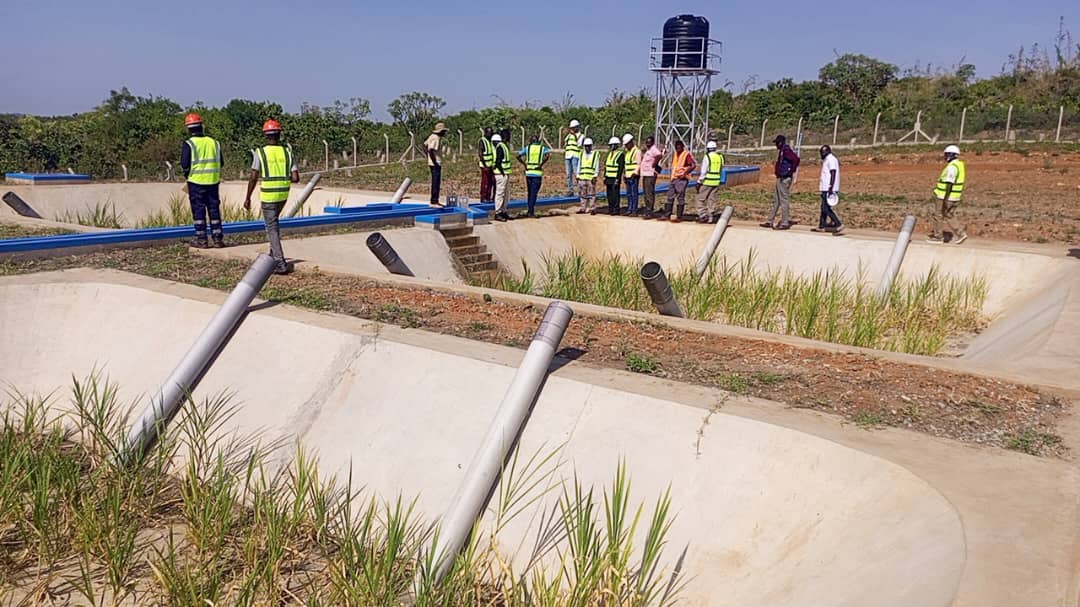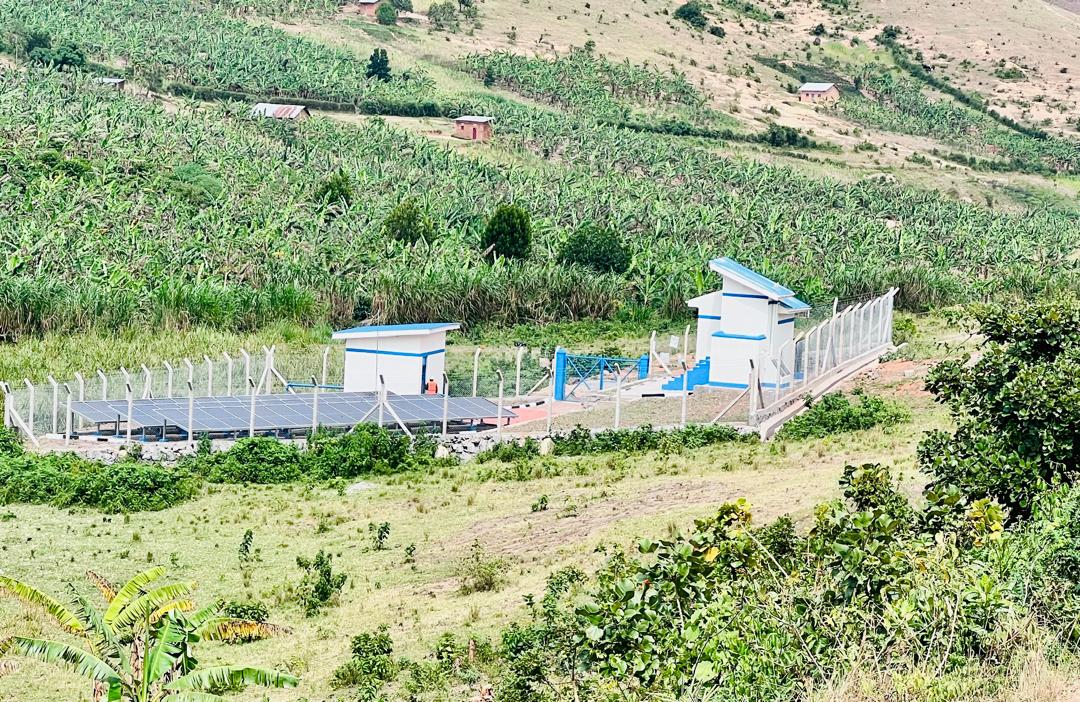
Namutumba’s Irrigation schemes boost wetland-dependent farmers.
In 2022, the Ministry of Agriculture Animal Industry and Fisheries established a mini-
irrigation scheme here in Mazuba sub-county, Namutumba district, at the periphery of
Mpologoma wetland systems under the Building Resilient Communities and Associated
Catchments in Uganda Project with support from the Government of Uganda (GoU), the
Green Climate Fund and the United Nations Development Program (UNDP).
The four-acre scheme not only supports smart farming throughout the year, but it also
acts as a demonstration Centre where communities adjacent to the wetland can acquire
knowledge on sustainable wetland use and management. The solar-powered scheme
serves 10 households (an average of 70 people) with a plan to acquire six more acres
of land to increase the level of benefit.
The four acres have been divided into 13 plots of 20 by 40 ft. The average return from
the scheme is between shs 10m-20m per season with each contributing approximately
between shs 800.000 – shs 2m. There are also water troughs for watering animals.
Three months ago, was the first season of cultivation. We visit the scheme to
understand how the farmers who voluntarily vacated the Mpologoma wetland are faring.
The farmers are growing fast-yielding crops like cabbages, tomatoes, onions, spinach,
and eggplants among others.
“We are doing pretty well. In our first season, we have been able to realise good returns
considering it is still a new venture where most of us are still learning,” Mr. Wancha
Alphonse, the Chairperson of the scheme, noted. “I earned shs1.5 m. After costs, I got a
profit of shs 1.2 m. I find this more profitable and less labour-intensive than growing rice,
which is not only highly labour-intensive and time-consuming, but great risk to our
environment,” he adds.
Mr Sepi Musana, another farmer at the scheme, testifies to how he bagged shs 800.000
from cabbages. “For my case, I was able to get shs 800.000 because this is my first
time to engage in this kind of venture,” Musana said.
Musana also doubles as a local council leader who was previously in favour of rice
growing in the Mpologoma wetland. Now, he does not regret coming out of the wetland,
considering the benefits his community is beginning to enjoy. One of the key issues
Musana is happy about is community access to grazing land and safe and clean water
for the animals, which was not previously possible before restoring the wetland.
 Official Website of the Ministry of Water and Environment
Official Website of the Ministry of Water and Environment



